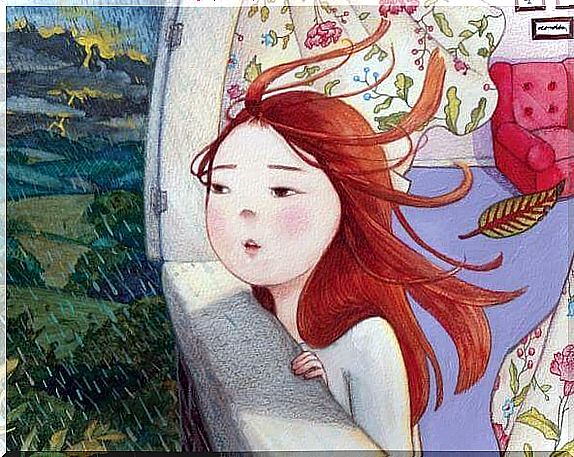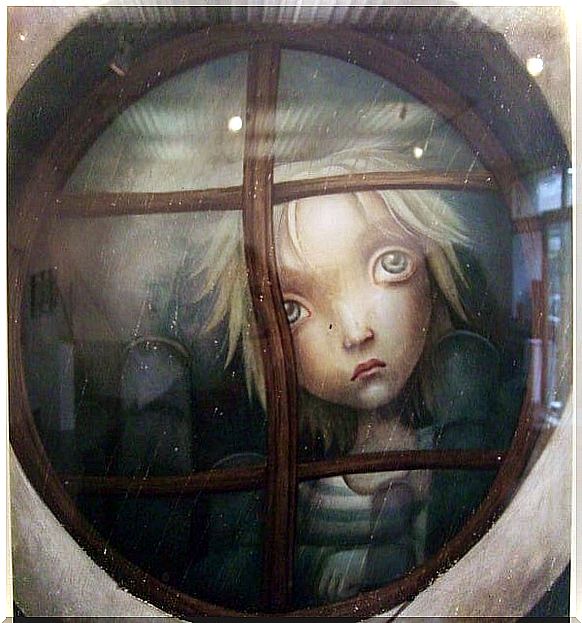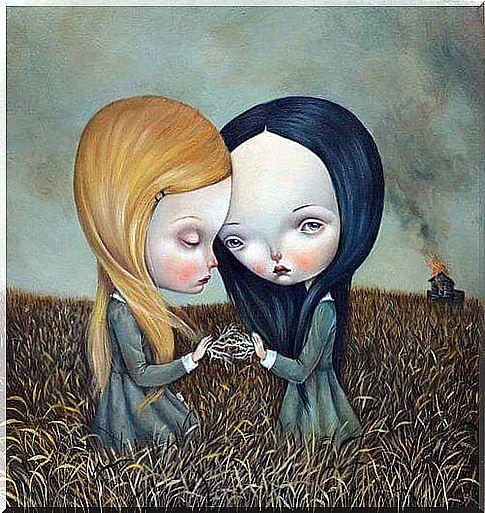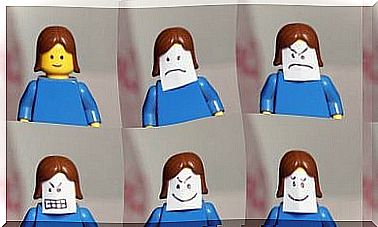The Demons Of Our Childhood

Childhood is the most important stage in life when it comes to internalizing values, lessons, and behaviors. Many psychologists who specialize in childhood and infancy emphasize the importance of gradually growing up and overcoming the different stages in a satisfying way so as not to get stuck in one of them.
If we had to identify which people influence a child the most, these would be the child’s parents or guardians. The majority of parents and guardians love us, want the best for us and know that raising a child is not easy. However, wanting is not always the same as doing.
Childhood experiences affect us in adulthood
Not every form of parenting takes place within an ideal context. There may be an imbalance in the division of tasks, a lack of emotional maturity, a crisis within the relationship itself. Or the new responsibility may simply prove to be too much or too difficult for some people.

In this article we will not judge anyone, nor do we want anyone to think we do. But there is no doubt that some parenting styles have negatively impacted the lives of some children who are now adults. We’ll name some of these styles and associate them with behaviors that can occur in adulthood, because sometimes knowledge and introspection are the best weapon we can have against our demons.
Parental behaviors that limit their children during childhood
In many cases, our childhood experiences are determinants of our adult life. There is a range of behaviors that some parents have towards their children that prevent them from living fully in the future:
- Overprotection: Parents always want to prevent bad things from happening to their children and limiting their freedom seems to be the key to this. The fear of these parents is so intense that they want to keep their children supervised in ‘safe area’ . The consequences for the children may be shyness, a lack of initiative, pathological hesitation in undertaking any individual activity, and a constant need for approval.

- Lack of signs of affection: This behavior is often the most destructive. A child needs contact with his parents. He must receive or feel love. Otherwise, he will assume that being cold is a behavior that he must also adopt. As a result, he will desperately seek love from others and experience difficulties balancing and expressing his emotions.
- Depressive behaviors by the parent or a feeling of worthlessness: Being surrounded by people who constantly let them know that their lives are not making them happy causes severe emotional distress in a child.
- Comparisons with other people or siblings: Some parents believe that their parenting style should be the same for all their children and thus ignore the individual differences between these children. The consequences of this are a feeling of futility in the child, as well as a lack of confidence in his abilities and skills.

- Family conflict, confrontation or divorce: Any divorce is difficult, but when children are involved, it is even more difficult. Many couples use “parental alienation” in the battle for their child, completely destroying his innocence and burdening him with problems. The child will have a strong sense of abandonment and will experience cognitive and emotional turmoil.
When the problems we experience during childhood still hurt
Although many years go by and everything you went through seems very far away and forgotten, sometimes you have very clear memories of all those situations that made you feel bad and that you did not understand. Now you may understand them, but with some regret and much resignation.
A good way to rid yourself of this burden is to “emotionally cleanse” yourself along with the people who went through the whole situation with you, including your parents. That is, getting rid of everything you carry inside you, expressing yourself. The importance of freeing ourselves from the negative, from that burden, is that it will take some weight off our shoulders.
You can better understand the circumstances your parents found themselves in if you compare them with yours. And when the time comes, don’t repeat them to your children. Because once is enough, because things can always be done better and because all we have to do is turn the page.









